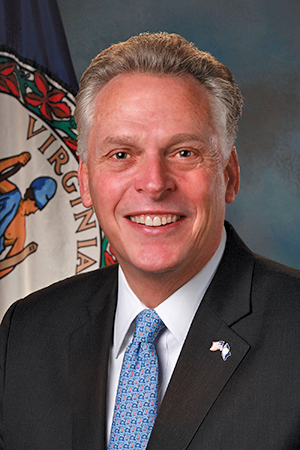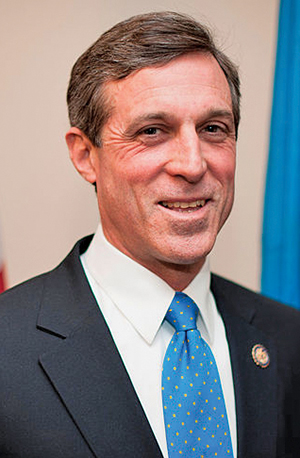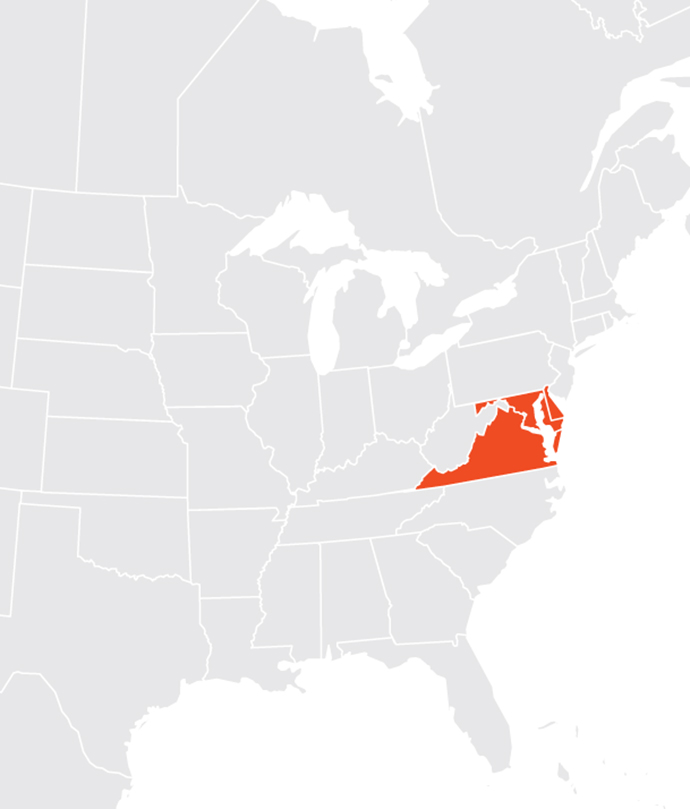The Mid-Atlantic states of Virginia, Maryland and Delaware are witnessing, to varying degrees, changes to their state economic development agencies. All three states have faced questions over methods of awarding and evaluating economic incentives.
Virginia: McAuliffe Leads House-Cleaning

Virginia Governor Terry McAuliffe signed legislation in June to re-vamp the embattled Virginia Economic Development Partnership (VEDP), which is in charge of the state’s business development efforts.
The partnership’s president and CEO was forced to resign this year, after a watchdog for the Virginia General Assembly uncovered systematic mismanagement at the agency, and, most damningly, an alleged failure to recoup $8 million worth of incentives awarded to companies that failed to meet performance targets.
In an interview with Site Selection, McAuliffe echoed the legislative finding that cast blame on an absentee board of directors that failed to exercise oversight over the partnership.
“The board was worthless,” said McAuliffe. “Why would you not ask about return on investment, about how we did on every deal? ‘Did we get our money back?’ These are basic questions you would ask. The board never asked them.”
A reconstituted board that’s to answer directly to the governor was announced in June, amid a parallel house-cleaning at VEDP. The partnership’s new president and CEO, Stephen Moret, has embraced the legislature’s critical findings and has a December 1 deadline to report on progress toward reforming his agency. Moret is a former McKinsey & Co. associate who previously served as president and CEO of the Baton Rouge Area Chamber and then secretary of Louisiana Economic Development under Governor Bobby Jindal.
Delaware Disbands Development Office, Tries Again

On August 14, Delaware Governor John Carney signed legislation dissolving the 35-year-old Delaware Economic Development Office (DEDO), after shifting most of its functions to a newly-created public-private partnership tentatively called the Delaware Prosperity Partnership.
The move was recommended by the Delaware Business Roundtable and applauded by the State Chamber of Commerce, which called the new partnership “another tool in the economic development toolbox to help revitalize Delaware’s economy.”
Criticisms of DEDO gained traction under Carney’s predecessor, Jack Markell, amid questions over transparency and the glaring failures of several projects supported by DEDO-awarded incentives. In the biggest such debacle, electric carmaker Fisker declared bankruptcy after the state had invested $20 million on the company’s promise to create 2,500 jobs. (Fisker now is trying to restart in California.)
The new Prosperity Partnership, to be up and running by the start of next year, will lead Delaware’s efforts to recruit new employers, with an emphasis on startups and entrepreneurship. Its 15-member board is to include representation from the state’s business community, a notable shift that is geared toward leveraging private-sector expertise.
Carney, in an interview with the Delaware’s News Journal, said:
“The times are different, and the economy is different. We need to do things different, be more aggressive and cultivate small entrepreneurial businesses, because that’s where the future is.”
Maryland Boosts Incentives Amid Criticism

Maryland Governor Larry Hogan, criticized over the process that yielded a record-breaking incentives deal to retain Northrup Grumman, nonetheless persuaded state lawmakers to enact new business expansion incentives.
Hogan’s legislative victory came as state lawmakers moved to rename and restructure the Maryland Economic Assistance Authority (MEDAAF) as the Advantage Maryland Fund. The legislation would give the state Department of Commerce more flexibility over the fund, including an increase in the limit on conditional loans from $2 million to $10 million.
In April, Hogan signed Senate Bill 317, the More Jobs for Marylanders Act of 2017, a comprehensive incentives package aimed at boosting manufacturing. The law allows for tax credits, sales tax refunds, an apprenticeship credit and workforce development scholarships.
Hogan, a Republican, had earlier drawn the wrath of Democratic lawmakers for negotiating the package for Northrop Grumman, one of Maryland’s biggest employers, in secret. The retention package totaling $57.5 million, including a $20-million conditional loan, was considered a “thank you” to the company for remaining in the state, even as Northrop officials denied having plans to relocate.
State Senate President Thomas V. Mike Miller urged fellow Democrats to support the package despite hammering Hogan for negotiating the terms in private, warning that “it won’t happen like this again.”
Northrop Grumman employs about 10,000 people in Maryland, and maintains the headquarters of its Mission Systems division in suburban Baltimore. Under terms of the incentives package, Northrop is expected to invest $100 million in capital projects and retain at least 10,000 in-state workers over the next decade.

